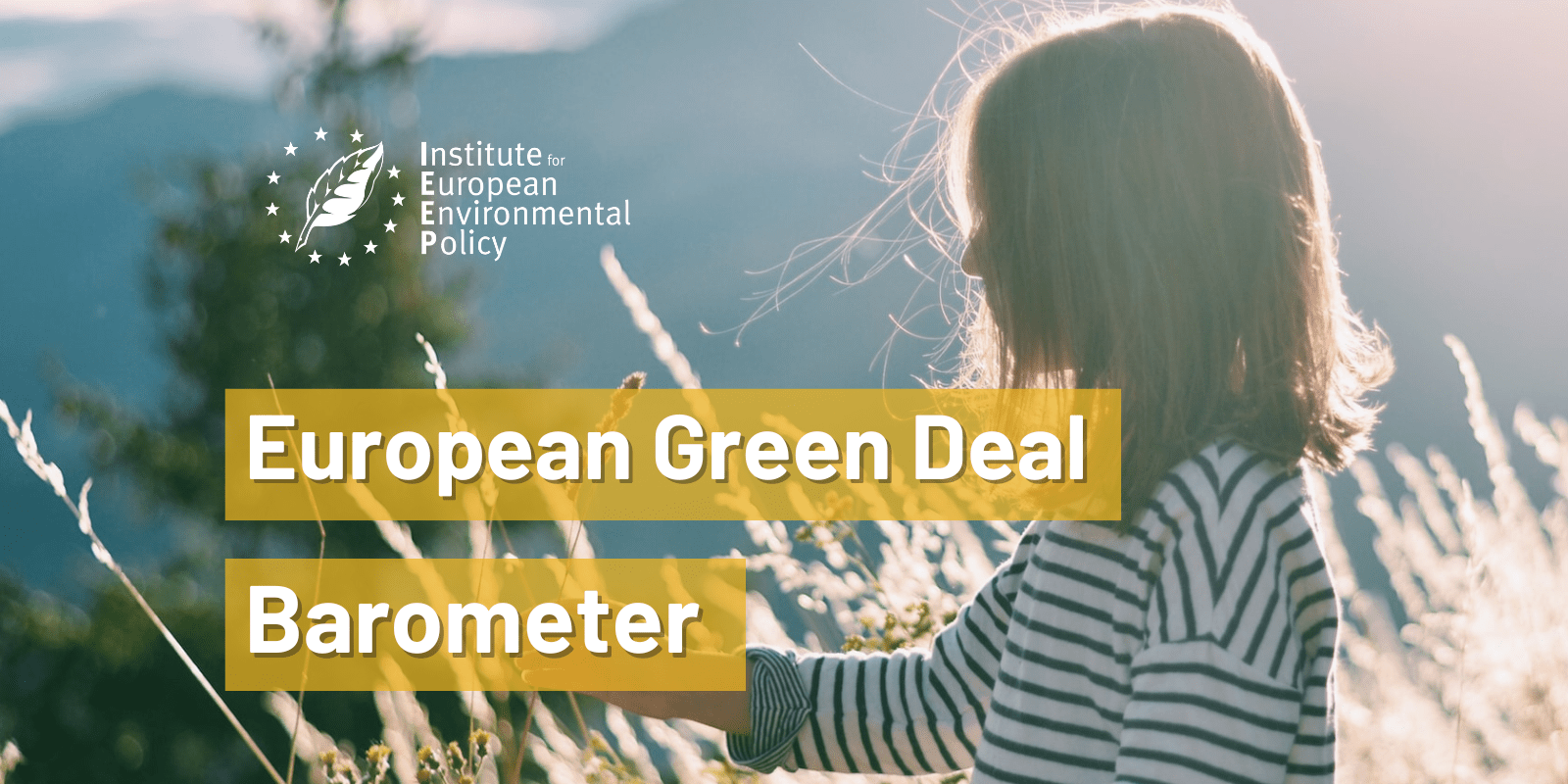Hundreds of sustainability experts remain convinced of the European Green Deal’s resilience to multiple crises, but insufficient Member State commitment persists.
The third edition of the European Green Deal Barometer, IEEP’s annual survey which gathers sustainability experts’ views on the progress of the European Green Deal’s implementation, has released its key findings. This comprehensive survey of 600+ experts reveals that 61% of respondents are cautiously optimistic about the European Green Deal’s resilience following the 2024 European elections; however, its implementation may be tested by shifting political winds in the run-up to next year’s European elections and beyond.
With the European elections looming, this year’s edition of the Barometer focused on assessing its resilience in the event of shifts in the political landscape, the actors who are likely to support its continuation, and the specific issues and policy areas to be prioritised by the incoming new Commission in 2024.
Overall, experts remain optimistic about the future of the European Green Deal, with 61% stating that the agenda will be at least moderately resilient after the 2024 European elections. 56% of surveyed experts are confident that the EU institutions will turn the European Green Deal agenda into approved legislation. However, 73% of respondents identified ‘insufficient commitment by Member States governments’ as the trickiest barrier to overcome if the ambitions of the European Green Deal are to be realised.
Five case studies were selected from Member States who have recently held the European Council’s Presidency or will in the upcoming Trio, namely France, Czechia, Sweden, Spain, and Hungary. These case studies provide a more profound understanding of national perspectives alongside examining the opportunities and challenges for national governments. Another area of focus looked at the potential impacts of the Green Deal’s ambition in relation to third countries.
The survey centred around a series of key policy questions assessing different policy areas within the European Green Deal agenda and its implementation.
- Climate mitigation and path to climate neutrality: 68% EU experts state that the recent increase in the EU’s greenhouse gas reduction targets from 55% to 57% are not sufficient for achieving the objectives of the Paris Agreement.
- Protecting and restoring ecosystems and biodiversity: ‘Farmers, fishers and foresters anticipating loss of income’ and ‘conflicting objectives between the Nature Restoration Law proposal and energy, climate, land use and oceans legislations’ are considered the most important obstacles to maintaining the Nature Restoration Law proposal’s ambition in a future final legislative agreement.
- Fair and sustainable food and farming system: 63% of EU experts believe ‘increasing financial support for farmers to transition towards sustainable agricultural practices’ is the most important action to focus on to achieve a more environmental and climate-friendly EU agriculture.
- Supplying decarbonised, affordable and secure energy: 77% of EU experts agree that the REPowerEU plan, designed to diversify the EU’s energy supply and double the deployment of renewable energy, as well as to combat energy poverty, is a key addition to the EGD agenda.
- Financing the transition to carbon neutrality: 91% of EU experts believe that as part of the mid-term review of the EU long-term budget for 2021-2027, the European Commission should propose to increase the share of funds allocated to the implementation of the European Green Deal agenda’.
Eero Yrjö-Koskinen, IEEP Executive Director said: “Sustainability experts are relatively confident that the Green Deal’s objectives will be turned into approved legislation. Such confidence should encourage our policymakers to step up their effort in achieving climate neutrality by 2050.”
The third edition of the European Green Deal Barometer includes a comprehensive list of recommendations for a more resilient and ambitious European Green Deal and to ensure its continuation beyond 2024.
These recommendations highlight the need to create a positive narrative ahead of the European elections, to break down barriers at Member State level, maintain engagement with the private sector, focus on social aspects, provide additional investment streams towards transition efforts, increase efforts to engage with international partners and to involve non-EU countries in the design of Green Deal policies.
The European Green Deal Barometer is produced and published by the Institute for European Environmental Policy – IEEP along with their survey contractor Savanta.
Picture gallery on Flickr.

